Avery Farmer: Common Sense Leadership Shows the Way
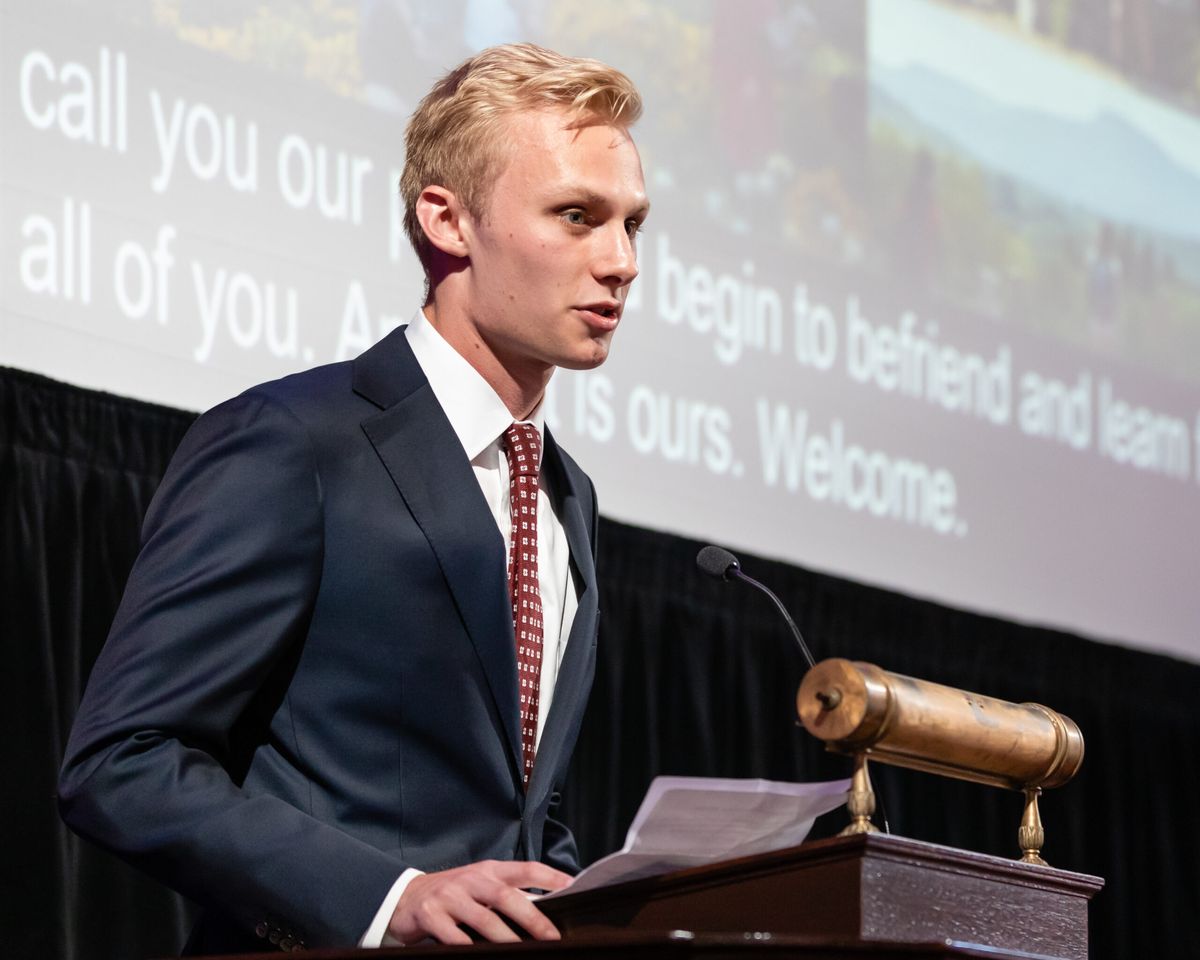
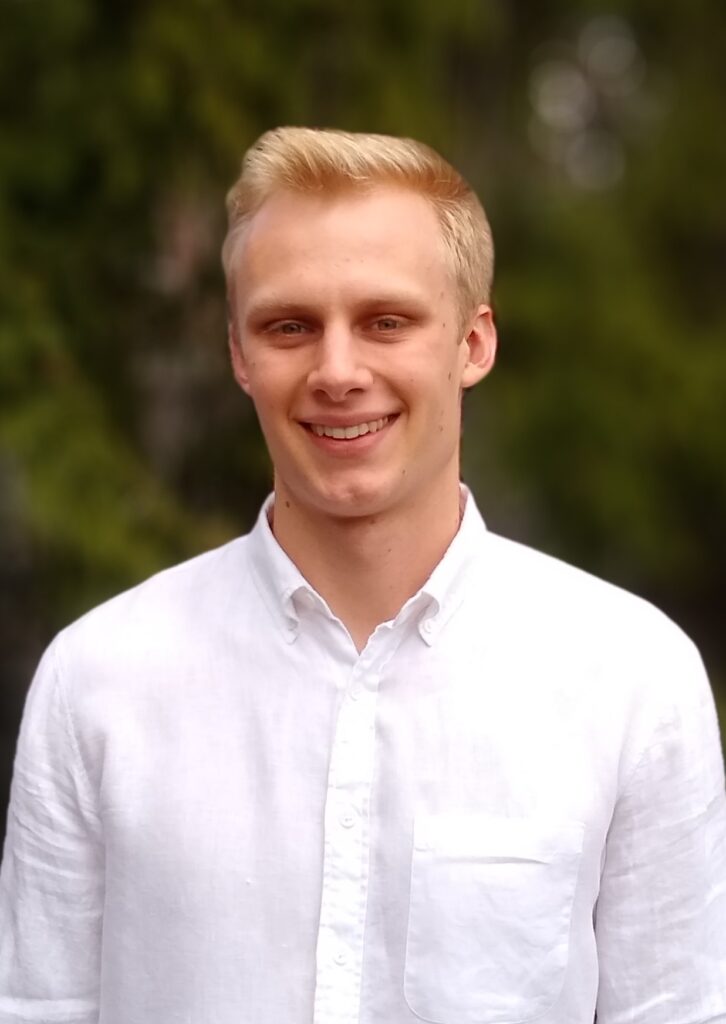
When I started out as a news writer for The Student during my first year, I found myself constantly interviewing one student: Avery Farmer ’20. His name appeared over and over again in the paper, as if he had a connection to every event on campus. He seemed to be in the know about everything, and everyone knew who he was.
I eventually got to know Farmer as a club soccer athlete whose tireless work ethic kept him in excellent shape on the team. I remember introducing a prospective student to Farmer, who was then the president of the Association of Amherst Students (AAS), during one of our club soccer practices. I was insistent that the student know how profound it was to act as student body president, but with a quick smile and a witty comment about the importance of campus newspapers, Farmer brushed off the compliment.
Because of his humble attitude, you would never know how much Farmer accomplished while at Amherst. But just a glance at his resume will leave you speechless as to how he achieved it all in four short years.
Known on campus as a Black studies and English double major, Farmer found time to work as a Resident Counselor (RC) for three years, intern at The Common Magazine, serve in the AAS, write a thesis on the role of soccer in Africa and hold executive board positions with the Amherst College Democrats (AC Dems) and the men’s club soccer team, endearingly called Amherst Football Club (AFC). To top it all off, Farmer had the small task of being president of the AAS his senior year — and amid the coronavirus pandemic, too. In sum, Farmer exemplified the Amherst experience.
First Steps at Amherst
Originally hailing from Ann Arbor, Michigan, Farmer said he found his way to Amherst by luck. He attended Community High School, an alternative public school that allowed Farmer to take several classes at the nearby University of Michigan. Though more than half of his classmates either attended college in Michigan or not at all, Farmer’s college search spanned outside of Michigan.
It was only by happenstance that Farmer heard about Amherst. While with the jazz ensemble during his sophomore year of high school, Farmer witnessed his fellow bandmate Dan Langa ’18 open his Amherst acceptance letter. By his senior year, Amherst was on Farmer’s short list of colleges.
Though Langa “showed him the ropes” once he arrived at Amherst, Farmer credits his smooth transition from high school to the friends he made in his first-year seminar.
“I got lucky with the friends I made early on,” he said. “Later on, once my academics really started to challenge me, I could rely on them for support,” Farmer said.
As an RC, Farmer was sometimes the first impression that incoming students received of Amherst. “Avery was my first-year RC, so he was one of the first people I really got to know at Amherst,” Bella Edo ’21 said. “He has always had this calming demeanor about him that makes you feel like he knows what he’s doing.”
“He somehow manages to be so intellectual without being arrogant and an authentically engaged person in our Amherst community without the frivolity of superficial relationships,” she added.
Farmer did not come into Amherst with an intended major. Instead, like a true liberal arts student, he took a wide breadth of classes and let his interests guide him. By the end of his sophomore year, when he had to declare his major, Farmer looked back at the classes he had taken and realized his love for Black studies and English.
Of particular interest to Farmer was one English class that he took with Professor Daniel Hall, the writer-in-residence at the college in 2018. “Writing Poetry with Professor Hall was one of the most formative classes I took at Amherst,” Farmer said. “It was a creative writing class, but he put such a focus on reading. In high school, I had written a bit of poetry, but I hadn’t been exposed to the full breadth of what poetry could be … I found that Professor Hall was such a generous reader of my poems, it made me much more confident in my writing, and fostered a love of reading and writing in me.”
“If there had been a poetry major, I would have done that,” he added with a laugh.
And Farmer’s love of poetry and writing certainly translated to the work he created. During his sophomore year, Farmer completed a special topics course with Hall on poetic revision, who praised the depth of the work Farmer produced. Farmer would complete assignments independently and meet with Hall once a week for a discussion. As the semester drew on, Farmer would come to examine drafts from poets including Richard Wilbur ’42 and subsequently revise his own poetry.
“Though his work that semester was rigorous and deeply intellectual, the project finally felt to me less like scholarship than something closer to poetry itself, with its intuition and vitality, its human heartbeat,” Hall said about their course. “It was one of the most exciting experiences I’ve ever had as a teacher, and I still think of it as a farewell gift and a sendoff, better than any gold watch.”
Farmer found similar success in his Black studies classes. During his first semester at the college, he took Black Panthers, Black Power, a course with John Drabinski, the Charles Hamilton Houston ’15 professor of Black studies. Farmer credits the relationship he had with Drabinski with his love for the subject. “From day one, he treated us all as equals in the conversation. He took seriously all of our reactions to the readings. That really allowed me to find my voice in the classroom,” Farmer said. “I walked away having learned so much [that] I realized I had to continue with the major.”
His senior year, Farmer continued his research in Black studies by writing a thesis on the meaning of pickup soccer to transnational immigrant Africans in the U.S., called “Pickup Soccer and Transnational African Public Life.” Farmer explained, “I argued that because of soccer’s unique history, it could essentially function as a civic public — a structure that allows individuals to form connections across boundaries of social identity that would otherwise not be crossed.”
Professor Olufemi Vaughan, his thesis advisor, noted Farmer’s knack for understanding the importance of complex social dynamics and the humanity individuals hold. “Avery’s thesis is analytically rigorous, intellectually profound and very well written — an imaginative scholarship at the intersection of the local and the global, regional and trans-regional,” he said.
“I enjoyed how Avery complicated identity formations, skillfully applied the concept of the civic public to his work and creatively engaged intersectional questions of race, ethnicity, gender, class, citizenship and globality, especially in the context of the disruptions and uncertainties of our contemporary neoliberal order — all important issues in the emerging field of transnational African studies — in his thesis. Avery drafted most of the chapters in his brilliant thesis after the college shifted to online teaching due to COVID-19,” Vaughan added.
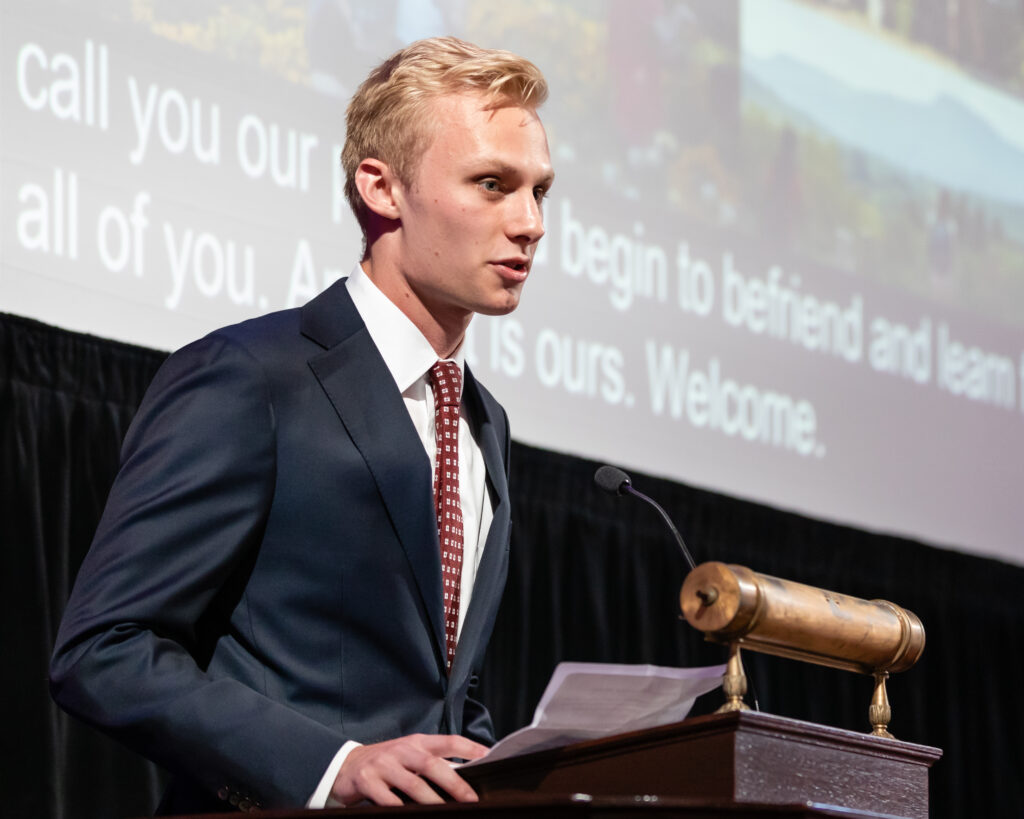
Commitment to Service
Farmer did not expect to become president of AAS, and he certainly did not expect to lead the student body during the most tumultuous challenge in recent history. But he rose to task nonetheless.
As an RC and a member of the executive board for AC Dems and AFC, he frequently interacted with AAS when requesting funds. It seemed only natural, then, to become AAS senator.
The rest is history. After joining the senate, Farmer worked on the budgetary committee and realized the potential of AAS that was not being met. Urged by friends and supported by the campus, Farmer ran for AAS president “on a whim” during the fall semester of his junior year. As he put it bluntly, “I thought I could do good things and that I was a good fit for the role, so why the heck not?”
Farmer’s term as AAS presdient was far from typical. His second semester in the position, the COVID-19 pandemic turned the campus upside down. Given the stressful, unprecedented nature of the events, as well as the heartbreaking and abrupt move-out of students, it would have been easy, understandable even, for Farmer to relinquish parts of his duties to the college administration. But Farmer’s dedication to supporting the Amherst community would not let him take the easy way out.
Instead of taking extra time in the final week on campus to pack his belongings and say goodbye to his close friends, Farmer diligently performed the duties of AAS president. The most immediate problem to address was how to allocate available funds in response to the pandemic.
“While most students on campus were packing up their things and trying to get moved out of their rooms, I was meeting with AAS and different student leaders who each had their different ideas of how the money should be spent,” Farmer said.
In the end, Farmer facilitated the transfer of $100,000 from AAS to the Office of Finanical Aid to be distributed among students to subsidize costs of travel home. It exemplified his “common sense” approach to leadership. The best policies are the most obvious ones, he said.
Through it all, there was not even a moment when he considered turning his back on the Amherst community.
After Amherst
Following his junior year, Farmer interned at Berkeley Research Group in Boston, doing research and data analysis for law firms, a role to which Farmer will return. There, he will work as a legal consultant before he plans to attend law school on the East Coast.
He finds business law particularly interesting, for reasons he can’t explain. It might stem from his broad experience in AAS, drafting precisely worded amendments and speaking the language of government. He is certain, though, that his future career must allow him to improve the lives of those around him. The value of a job, Farmer said, is not the prestige but the impact. When asked if a career in politics could be in his future, he did not rule it out.
“In his own pursuit and love for knowledge he is able to uplift others as well, in a way many people do not always choose to do,” Edo said. “His support, guidance, awkwardness, bad jokes and, above all, kindness have had a lasting impact on my Amherst experience, and it has been exciting to watch him grow into the leader he is leaving Amherst as.”
Though uncertain of where life will take him, if history is at all indicative of his future, it sure is bright for Farmer.


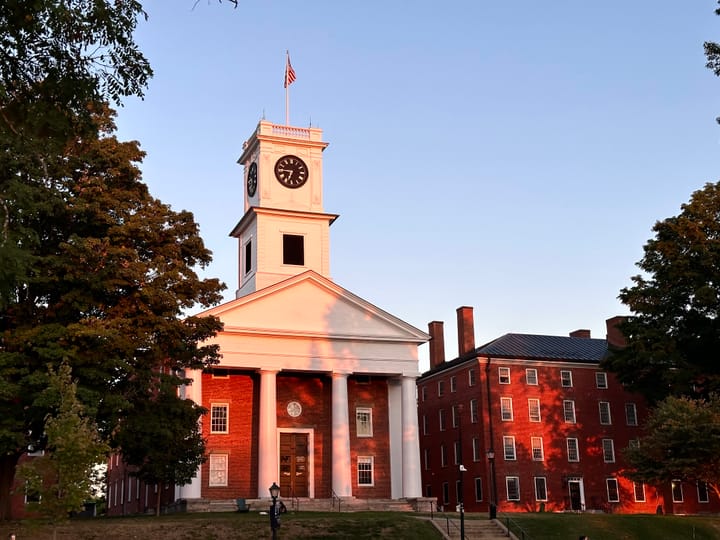

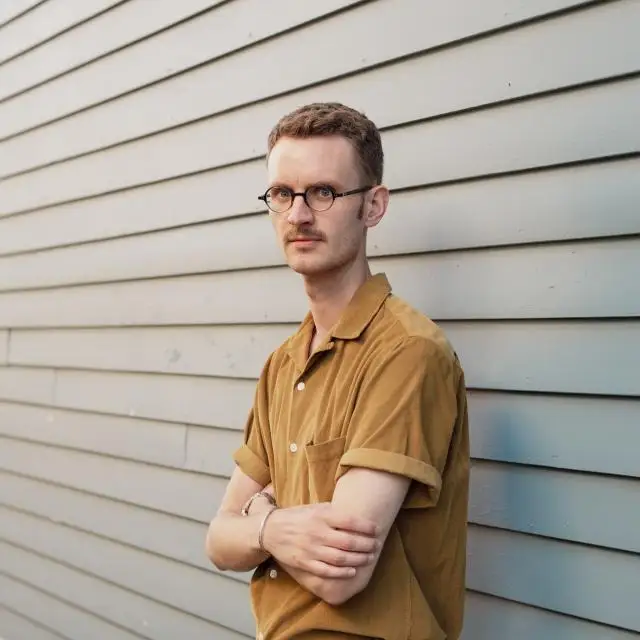
Comments ()